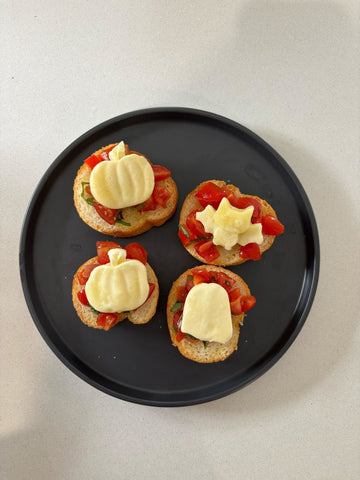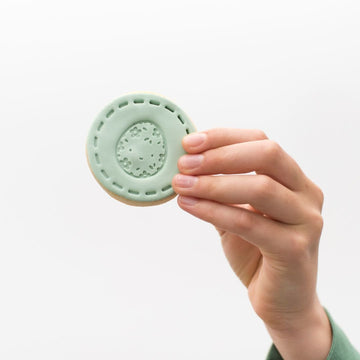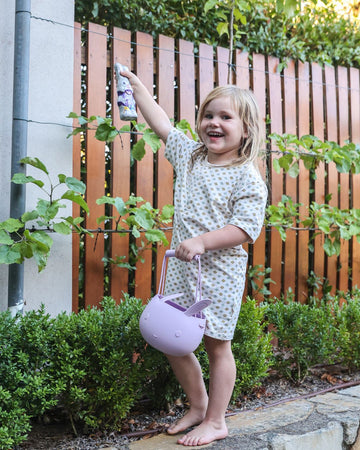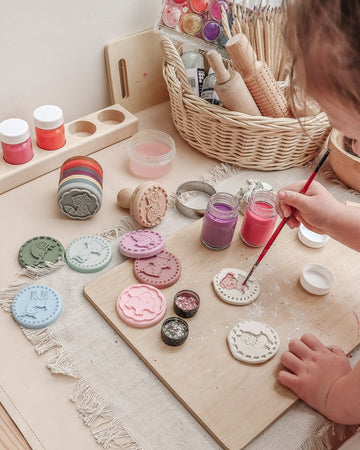Going “plastic free” has become the norm lately as families take steps to create a more sustainable and environmentally-friendly lifestyle. Sometimes it can seem overwhelming with where to start on this journey but even the smallest changes can make a large difference!
Reusable Coffee Cups
A simple but effective change is to use a reusable coffee cup rather than a disposable one. Did you know that most disposable coffee cups are lined with plastic which means the cups can’t be recycled? Or that the lids can be recycled separately but only through dedicated recycling centre?
Just think of how many disposable cups you won’t use if you bring your own! There’s lots of options around, depending on your preference or your needs. Keep Cups are one of the most well-known brands, with glass and plastic options. Our personal favourites is the Luxey Cup – which is a glass coffee cup with a silicone lid. Or you can get insulated stainless steel ones, like these from Avanti, which keep your coffee warmer for longer (perfect for the busy mum who never gets to drink a warm coffee normally!).
Reusable Grocery Bags
Depending on where you shop you may have found you’ve been required to move away from plastic bags at your weekly shopping trip. in Australia, big supermarkets like Coles and Woolworths have made the switch to not supplying plastic bags unless you ask, and pay, for one.
You can buy the ones the supermarkets sell, or reuse bags from other shops. You can even use cardboard boxes or woven baskets. Or you can sew your own bags like through the program Boomerang Bags.
One of our personal favourites shopping bags are from Project Ten, a fellow Victorian small business.
More changes at the supermarket
There are other changes you can make when doing your grocery shopping that can lead to a plastic free lifestyle.
Eschew the plastic produce bags for reusable produce bags or make sure to choose products with less plastic packaging – there are lots of brands moving toward card or minimal packaging. You could even bring your own containers to the butcher, deli or fishmonger.
Choose bulk items (like large bags of rice) to cut down on packaging. Find a health food or minimal waste grocery store that allows you to fill containers and jars for dry goods.
Silicone or plastic-alternative straws
Plastic straws have become a hot topic with the damage they do to sea life becoming more well-known. Thankfully there are now lots of options for moving away from plastic. You can get straws made from stainless steel, silicone, or bamboo. Or you can get more environmentally friendly one-use straws made from paper, plant-based plastic or even wheat.
Our Bendie Straws or Bubble Tea Straws are the best option (in our opinion!) for both at-home and on-the-go use.
Lots of changes in the bathroom!
It’s surprising when you realise exactly how much plastic you use in the bathroom! Thankfully, that means there’s lots of opportunities to move to plastic-free options.
Shampoo bars have become popular recently and make it easier to move away from the plastic bottles of shampoos and conditioners – they are usually in cardboard package and don’t require any storage in the shower. Soap bars are obviously better than body washes for the same reason, but try to choose brands that don’t use plastic packaging.
Disposable razors can be expensive to change regularly and even the plastic handles don’t last long. Changing to safety razors may seem daunting but will save you lots of money, as well as saving plastic.
Other options include buying in bulk as much as possible to save on packaging (it’s easy to keep bulk containers under the sink and fill up the hand wash or shampoo when needed), finding toilet paper brands that use less plastic packaging (our favourite brand is Who Gives a Crap), using bamboo toothbrushes instead of plastic or using compostable items such as dental floss and cotton buds.
For a natural 'no-nasties' toothpaste, we recommend New Zealand natural oral care brand Grin Natural. Dentist recommended and kid approved!
Cleaning products
You may not think of cleaning products when it comes to plastic but how often do you reuse the bottle after you finish a product?
You can make your own cleaning products easily, using bi carb, vinegar and essential oils. Or simply buy in bulk and reuse spray bottles and containers, instead of buying more.
Use silicone, glass or stainless steel in the kitchen instead of plastic
Plastic lunchboxes are the norm but stainless-steel ones are fantastic! Plus, they tend to last longer too.
Plastic sandwich bags may be convenient but are most often disposable and single use. Reusable sandwich bags are a great option, as are containers for snacks and recess items. Take a look at our Snackies for a perfect silicone snack container.
Similarly, single-use yoghurt pouches are convenient but it can actually save you money, as well as plastic, to move to reusable yoghurt pouches.
Start to change your plastic storage containers to glass jars (reuse ones from instant coffee or jams!). Don’t throw out the plastic containers you’re no longer using but use them around the house for storage – they’ll last longer if they’re not being used and washed as often as they would in the kitchen.
Instead of buying a bottle of water while you’re out of the house keep a reusable bottle on you – there are lots of options including glass or stainless steel.
And of course, you can replace the plastic kid plates, cups, placemats, bibs etc with our products! Explore our range of silicone tableware.
Need more inspiration?
- Review the winners of the Australian Non-Toxic Awards 2020 – which have a focus on environmental sustainability.
- Here is a fantastic room-by-room guide to going waste free in your home.
- Pinterest is full of items and inspiration for living plastic-free.








